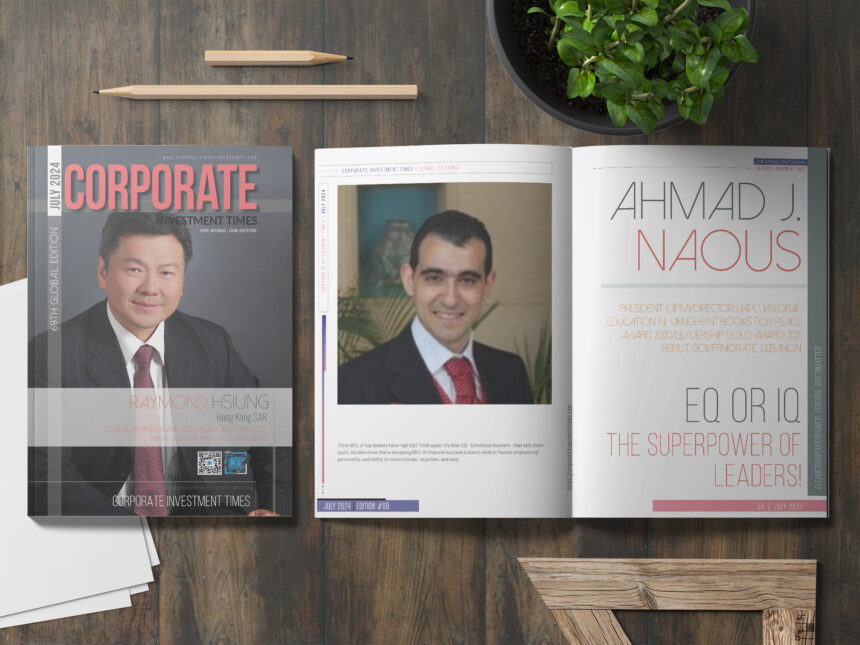Think 90% of top leaders have high IQs? Think again! It’s their EQ - Emotional Quotient - that sets them apart. Studies show that a whopping 85% of financial success is due to skills in “human engineering”, personality, and ability to communicate, negotiate, and lead.
Ever wonder why some people with average IQs outperform those with the highest IQs 70% of the time? It’s not about the smartest guy in the room anymore. It’s about being in touch, in tune, and in sync with people’s emotions.
The World Economic Forum lists Emotional Intelligence among the top 10 skills needed in leaders! Why? Because EQ directly impacts how we manage stress, conflict, make decisions, and improve relationships both personally and professionally.
So, how can we boost our EQ? Here are some key tips:
Practice Self-Awareness: Understand your emotions and their impact on others.
Foster Empathy: Put yourself in others’ shoes.
Cultivate Self-Regulation: Learn to control your emotions, not the other way round.
Enhance Social Skills: Become a pro at managing relationships and building networks.
Motivate Yourself: Stay positive, especially in stressful or difficult situations.
So, which of these EQ skills do you think is most crucial for a leader in today’s world?
Life becomes easier
When you stick to these 3 rules:
Evening Audit: Spend 10 minutes each night reflecting on your day. Identify one thing to improve tomorrow.
The 10% agreement: In every tough talk or conflict, find 10% you agree with instead of what you disagree with. Start your response with, “Yes, I agree…” then bridge with “AND…”.
Reframe the Game: View every challenge as an opportunity. In moments of struggle, ask yourself, “What positive lesson can I learn from this?”
Pain comes from wanting change but not moving.
In the world of personal and team dynamics, there are two types of people: energizers and energy-sappers. Here’s a breakdown of who excels in which category, along with some examples:
Energizers
Who they are: Energizers are positive, enthusiastic individuals who uplift and motivate those around them. They inspire creativity, collaboration, and a can-do attitude.
How they excel: Energizers radiate positive energy. They offer encouragement, share solutions, and focus on possibilities. They celebrate successes and help others bounce back from setbacks.
Example: Imagine a team brainstorming for a new project. An energizer might jump in with a burst of ideas, say something like, “This is exciting! Let’s think outside the box,” and encourage participation from everyone.
Energy-Sappers
Who they are: Energy-sappers, on the other hand, tend to drain the enthusiasm and motivation of others. They might be negative, critical, or constantly focus on problems.
How they drag others down: Energy-sappers might constantly complain, point out flaws without solutions, or be overly critical of others’ ideas. This negativity can create a stressful and unproductive environment.
Example: During the same brainstorming session, an energy-sapper might shut down ideas with phrases like, “That won’t work” or “We don’t have the resources for that,” without offering alternatives.
It’s a spectrum: It’s important to note that most people fall somewhere in between these extremes. We all have days where we might be more energized or drained. The key is to be mindful of the impact you have on others and strive to be an energizer more often than not.
Remember: A team with a healthy balance of energizers and a positive approach can achieve great things!
Emotional intelligence (EQ) is crucial for top leaders:
IQ is a baseline, EQ is the differentiator: A high IQ is important, but it’s just the starting point. Leaders need strong cognitive abilities to analyze problems and make sound decisions. However, EQ takes it a step further by enabling them to understand and manage their own emotions, as well as the emotions of others.
EQ fosters strong relationships: Great leaders build strong relationships with their teams, clients, and colleagues. EQ allows them to connect with people on an emotional level, fostering trust, respect, and collaboration.
EQ navigates complex situations: Leaders often face challenging situations with different personalities and perspectives. EQ helps them navigate these situations effectively, manage conflict, and inspire others to work towards a common goal.
EQ builds a positive work environment: Leaders with high EQ create a work environment where people feel valued, motivated, and supported. This not only improves morale but also leads to higher productivity and success.
Those studies you mentioned about financial success highlight the importance of EQ. Being able to connect with people, influence them, and build strong relationships is essential for any leader, especially in the financial world.
EQ (Emotional Quotient) is generally considered more important than IQ (Intelligence Quotient) for leadership and overall success in many areas of life. Here’s why:
EQ focuses on interpersonal skills: EQ deals with your ability to understand and manage emotions, both your own and those of others. This translates to better communication, empathy, and conflict resolution – all crucial for navigating relationships and leading teams.
IQ is a single dimension: IQ primarily measures cognitive abilities like reasoning and problem-solving. While important, it doesn’t encompass the social and emotional intelligence needed to thrive in most workplaces and social settings.
EQ fosters better relationships: With strong EQ, you can build trust, rapport, and inspire others. This is essential for effective leadership and collaboration.
However, it’s important to note that both IQ and EQ are valuable. A good leader likely has a solid IQ to handle complex problems but excels with a high EQ to navigate the human side of leadership.
Here’s an analogy: Imagine IQ as the engine of a car and EQ as the steering wheel. The engine provides the power, but it’s the steering wheel that controls the direction and gets you to your destination.
![]()



